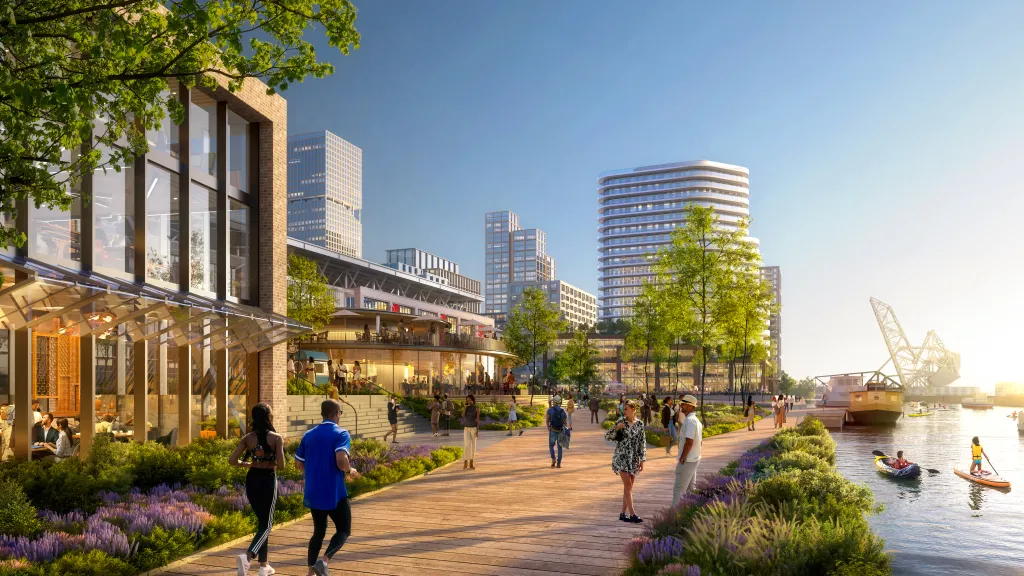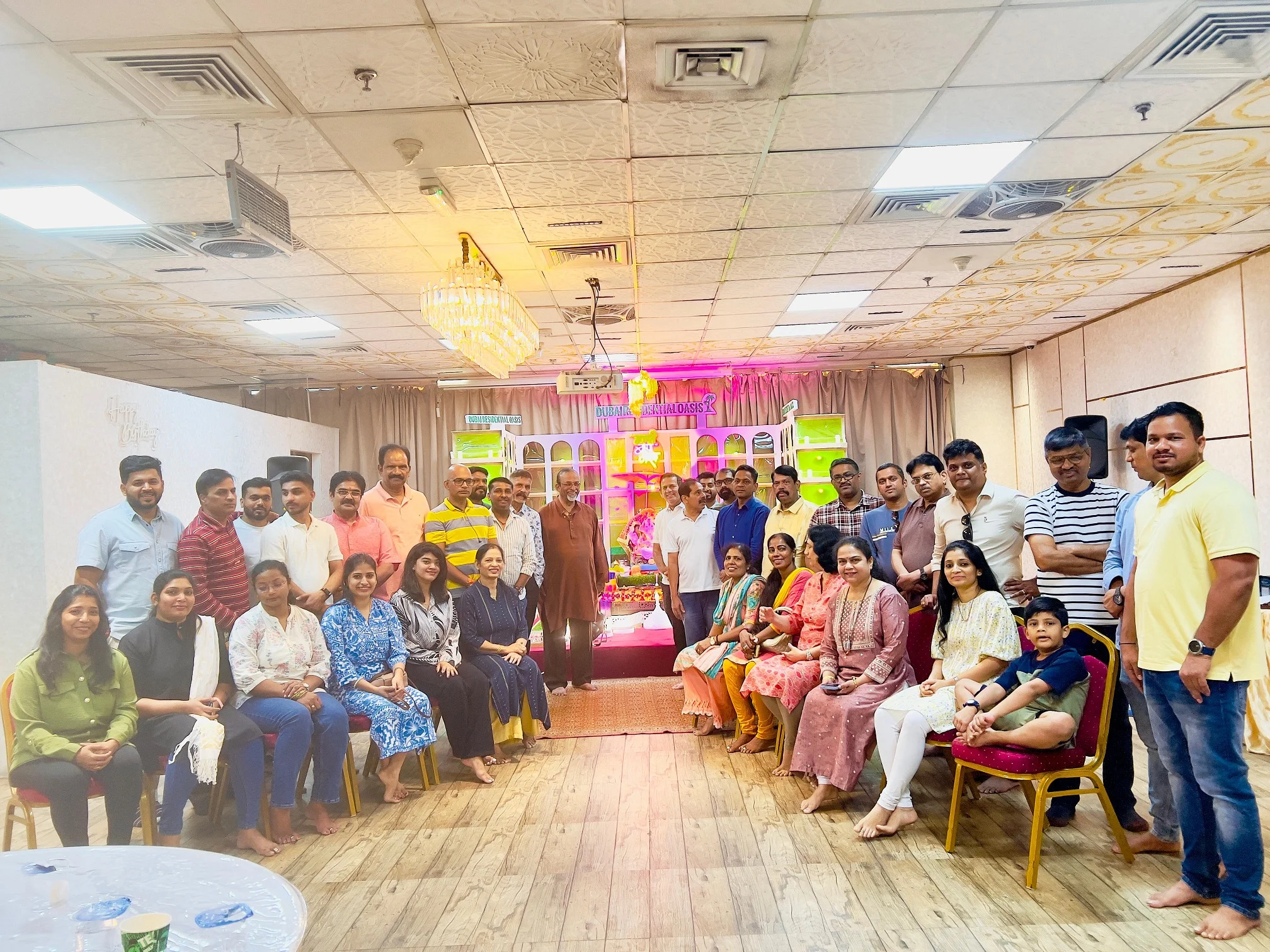
The Chicago Plan Commission approved a proposal Thursday by developer Related Midwest to build a 22,000-seat soccer stadium for the Chicago Fire on The 78, the mega-development site just south of downtown along the Chicago River.
Related Midwest President Curt Bailey told commission members the company has been trying to figure out how to use the empty 62-acre site for eight years. Plans to transform it into Amazon’s HQ2 headquarters or the home of the Chicago White Sox fell through, but Bailey now envisions an $8 billion community rising alongside the Major League Soccer stadium, with up to 10,000 units of housing, including 2,000 affordable units, new retail, park space and riverfront amenities stretching from Roosevelt Road down to Chinatown.
“This will be the leap forward,” he said. “We’re finally here to begin new construction.”
The Fire’s billionaire owner Joe Mansueto wants the $750 million, privately financed stadium ready for the 2028 season, and Bailey wants to secure final City Council approval and break ground as soon as possible. But a parade of residents from nearby neighborhoods such as Chinatown and Bridgeport told commission members the stadium plan, first announced in early June, is moving too fast.
“What will happen to Chinatown if this luxury housing comes in?” said Sarah Tang, director of programs for the Coalition for a Better Chinese American Community. She worries the neighborhood’s many senior citizens will no longer be able to afford rents if property values near the stadium shoot up. “These folks will be gone.”
Other speakers were concerned whether the new plan provides enough transportation infrastructure, especially for game nights when tens of thousands of soccer fans will surge into the area. The city’s original 2019 redevelopment agreement with Related Midwest called for spending $551 million on transportation upgrades at The 78, including a new CTA Red Line station and realigning the site’s railroad tracks, but that’s all gone.
“Given the high volume of visitors arriving and departing for events and the thousands of proposed housing units on-site, high-capacity travel options are critical,” said Debbie Liu, manager of the Metropolitan Planning Council. “The current proposal has substantial deficiencies in this realm, and we encourage the development team to re-incorporate transit and multimodal improvements into the proposal.”
Bailey said the new plan still includes many transportation upgrades, including expanded streets, new pedestrian walkways, and utilizing other nearby CTA stations such as Roosevelt Road to handle game night crowds. And the projected costs for a new Red Line station, along with the other upgrades first planned in 2019, have soared up to possibly $1 billion.
“Those things are not going to happen,” he said. “It’s a different world then it was back then.”
Related Midwest and Ald. Pat Dowell, 3rd, held a series of community meetings throughout the summer, but Angela Lin, co-president of the community organization People Matter, said it wasn’t enough. She recently helped survey hundreds of residents in Chinatown, Bronzeville and other neighborhoods, and found at least half knew nothing about plans for The 78.
“If the community doesn’t even know this is happening, I think there needs to be more community engagement,” Lin said.
Other residents said they hoped Related Midwest would negotiate a community benefits agreement with surrounding neighborhoods, or reestablish the community advisory council created by former Mayor Lori Lightfoot. Commission member Ald. Byron Sigcho-Lopez, 25th, said he supported those efforts, and was the only voting member present who did not vote “yes.”
“I do think that there has to be a mechanism (for community engagement),” he said.
Dowell said neighborhood residents will have many opportunities to influence The 78. The plans are still fluid, and Related Midwest faces more hurdles, including winning approvals from City Council, the council’s Zoning Committee, and from the Chicago Plan Commission for future phases. But a development on this scale, which will create thousands of jobs and finally fill up a vacant stretch of the Chicago River, is too important to delay.
“Community engagement is not secondary to me, it’s fundamental,” she said. “This project is a balance between what’s good for the city and the community and the things we need to work on.”
Many speakers favored a quick start for Mansueto’s soccer stadium, including owners of minority-owned business enterprises, who say it will give an economic boost to the South Side.
“For small businesses like ours, it means contracts, capacity growth and the chance to put people to work,” said Jimmie Williams, chief executive officer of Urban Roots Inc., a landscaping service.
Jim Wales, president of the nonprofit South Loop Neighbors, said the organization did worry about possible traffic congestion and pedestrian access. But after meeting with Related Midwest and Dowell, he said they decided to support the stadium, andbelieve their concerns can be addressed as the project moves forward.
“It should be seen as a positive business catalyst, not just at The 78, but throughout the South Loop.”



